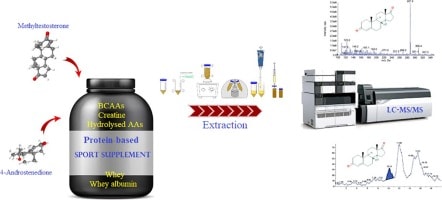They answer, in many cases, is yes. I explore that issue in this vid. For those who want to get into the details of the topic, and excellent review paper is linked below.
How dieting makes the lean fatter: from a perspective
of body composition autoregulation through
adipostats and proteinstats awaiting discovery
A. G. Dulloo, J. Jacquet, J.-P. Montani and Y. Schutz
Department of Medicine, Division of
Physiology, University of Fribourg, Switzerland
Summary
Whether dieting makes people fatter has been a subject of considerable controversy
over the past 30 years. More recent analysis of several prospective studies suggest,
however, that it is dieting to lose weight in people who are in the healthy normal
range of body weight, rather than in those who are overweight or obese, that most
strongly and consistently predict future weight gain. This paper analyses the ongoing
arguments in the debate about whether repeated dieting to lose weight in normal-
weight people represents unsuccessful attempts to counter genetic and familial
predispositions to obesity, a psychosocial reaction to the fear of fatness or that
dieting per seconfers risks for fatness and hence a contributing factor to the obesity
epidemic.
In addressing the biological plausibility that dieting predisposes the lean
(rather than the overweight or obese) to regaining more body fat than what had been
lost (i.e. fat overshooting), it integrates the results derived from the re-analysis of
body composition data on fat mass and fat-free mass (FFM) losses and recoveries
from human studies of experimental energy restriction and refeeding. These suggest
that feedback signals from the depletion of both fat mass (i.e. adipostats) and FFM
(i.e. proteinstats) contribute to weight regain through the modulation of energy
intake and adaptive thermogenesis, and that a faster rate of fat recovery relative to
FFM recovery (i.e. preferential catch-up fat) is a central outcome of body compo-
sition autoregulation in lean individuals.
Such a temporal desynchronization in the restoration of the body’s fat vs. FFM results in
a state of hyperphagia that persists beyond complete recovery of fat mass and interestingly until FFM is fully recovered.
However, as this completion of FFM recovery is also accompanied by fat deposition,
excess fat accumulates. In other words, fat overshooting is a prerequisite to allow
complete recovery of FFM. This confers biological plausibility for post-dieting fat
overshooting – which through repeated dieting and weight cycling would increase
the risks for trajectories from leanness to fatness. Given the increasing prevalence of
dieting in normal-weight female and male among young adults, adolescents and even
children who perceive themselves as too fat (due to media, family and societal
pressures), together with the high prevalence of dieting for optimizing performance
among athletes in weight-sensitive sports, the notion that dieting and weight cycling
may be predisposing a substantial proportion of the population to weight gain and
obesity deserves greater scientific scrutiny.
Full Paper HERE
Will Brink is the owner of the Brinkzone Blog. Will has over 30 years experience as a respected author, columnist and consultant, to the supplement, fitness, bodybuilding, and weight loss industry and has been extensively published. Will graduated from Harvard University with a concentration in the natural sciences, and is a consultant to major supplement, dairy, and pharmaceutical companies.
His often ground breaking articles can be found in publications such as Lets Live, Muscle Media 2000, MuscleMag International, The Life Extension Magazine, Muscle n Fitness, Inside Karate, Exercise For Men Only, Body International, Power, Oxygen, Penthouse, Women’s World and The Townsend Letter For Doctors.
He’s also been published in peer reviewed journals.
Will is the author of the popular e-books, both accompanied by private members forum access , Bodybuilding Revealed & Fat Loss Revealed.
You can also buy Will’s other books on Amazon, Apple iBook, and Barnes and Noble.




I am a 1%er- one of those people who succeeded in losing it and keeping it off. I lost 52 lbs 12 years ago, and with brief ups and downs (5-15 lbs) have kept it off. That’s the brag. What’s the fact? It’s that when I lost the weight, mostly fat, I never changed my eating plan from the ‘diet’ phase. I continue to eat the same way I lost it, all these years later. If I stray from this balanced diet, I will affect my weight. If I waited till I gained back a lot of it, I would be defeating my purpose in losing the weight. I have worked with dieters for years, trying to show them how to accomplish their weight loss goals. I always tell them that going back to their old ways is a recipe for disaster. All say they understand. Few do. Slipping back into old habits is easy. Maintaining their desired weight is only as easy, or as hard, as they make it. Yo-yos are for kids, not for healthy, balanced living.
Sounds like you did it the right way Marty!
Hi Will the link to the study is not working.